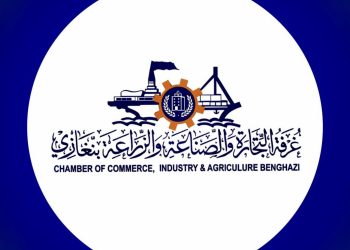Tripoli, 24 March 2012:
Yara International, the Norwegian company owning half of the Libyan Norwegian Fertiliser Company (Lifeco), has been charged in . . .[restrict]its home country with “aggravated corruption” in connection with its Libyan joint venture.
Yara, one of the world’s largest mineral fertiliser producers, is also under investigation over another joint venture deal in India. The alleged corruption connected with Libya centres on payments made in Switzerland over a number of years.
AFP reported that a company spokesman refused to reveal details beyond saying that it was too early to give the exact amounts of the questionable payments and that “It appears that they were made over a long period of time and that they were for significant amounts.” The company itself had alerted the Norwegian authorities once the suspected fraud had been spotted.
It would seem that the Lifeco deal itself took a long time to set up. Heads of agreement were only signed in 2007 after extensive preliminary negotiations and the final contract was not concluded until 2009. Under the deal. Yara was a 50 percent partner, with the National Oil Corporation of Libya (NOC) and the Libyan Investment Authority (LIA) holding 25 percent each.

The joint venture company took over the operation of Libya’s only ammonia/urea complex, at Brega, formerly run by the Sirte Oil Company (SOC), which retained ownership of the facilities. The complex, valued at $225 million, consisted of two ammonia and two urea plants, bagging and storage installations and harbour facilities, which together employed 1,200 people. NOC was to supply Lifeco with gas at a rate linked to fertiliser prices, which on paper sounded like a generous deal for the joint venture. The purchases however were for some reason to be made through SOC. SOC was also to be used to source “a wide range of local services from SOC, including central warehousing, workshop and laboratory services, heavy cranes and marine services, loss-prevention services, housing, canteen and catering services, central office services and transportation.”
Yara for its part was to upgrade the plant and handle all international marketing. The majority of sales was slated for Mediterranean countries with sub-Saharan Africa and the Americas as secondary markets.
Lifeco has an eight-man board, with the chairman appointed by the Libyan partners and the first CEO, Gianni Paci, by Yara. The Norwegian firm also seconded a management support systems expert, while the Libyan partner seconded deputies for the ammonia, urea and maintenance areas
The planned annual output was 700,000 tonnes of ammonia and 900,000 tonnes of urea. However, Yara currently lists its share of production from the Brega complex as being 400,000 tonnes of ammonia and 500,000 tonnes of urea, which since it owns half the business, suggests that production may already have exceeded expectations.
Lifeco boasted at the time of the deal: “In the longer term, the company will evaluate the establishment of new production facilities – largely dependent on supplies of natural gas and global market prospects. Through SOC, NOC has developed a local structure and an organisation with excellent knowledge of the fertiliser plants, and a complete well-structured services department. Combined with Yara’s unique global network and international position, this provides a solid foundation for making the partnership an industrial and commercial success.” [/restrict]







